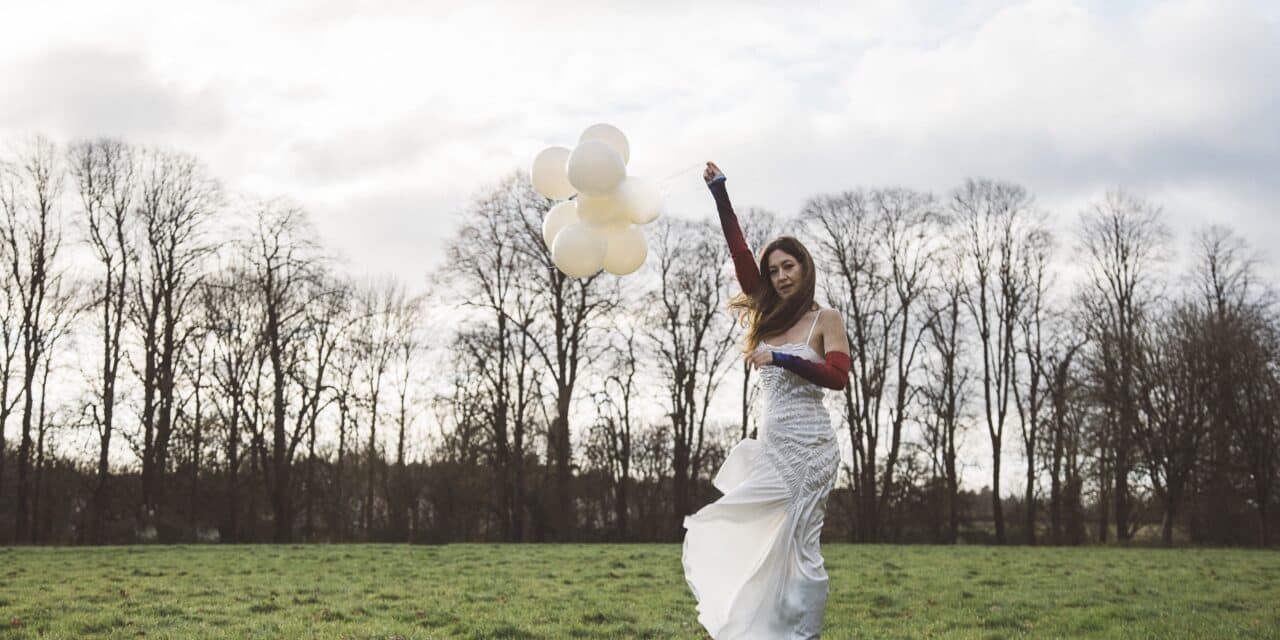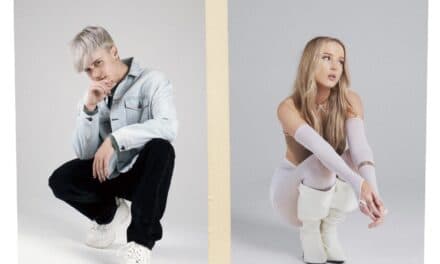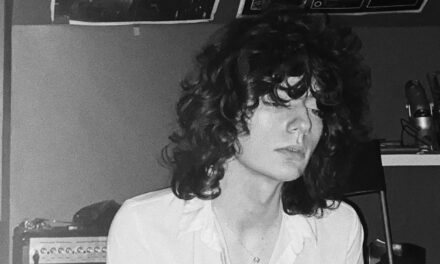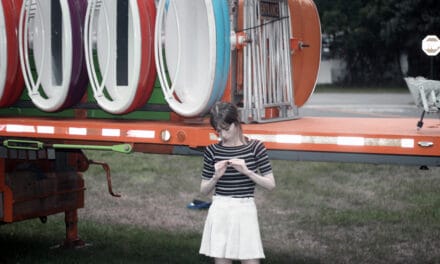London-based alternative R&B visionary Lyves emerges from a deeply personal metamorphosis with Out of the Blue, her most intimate and luminous work yet. The five-track EP, out now, captures the quiet power of transformation — shedding the melancholy ache of her earlier music for something gentler, wiser, and quietly fierce.
Written during a profound life chapter that included the birth of her son, Out of the Blue radiates with tenderness and clarity. Across its cinematic soul textures and ethereal R&B flourishes, Lyves — the musical project of Francesca Bergami — explores motherhood, mental health, emotional reclamation, and the subtle strength of softness. As she describes it, these songs are “a love letter to healing, to finding light in unexpected places.”
Produced and written alongside collaborators like SamTRax (SiR, Brent Faiyaz), Sam Crowe (Little Simz, Cleo Sol), and Harvey Whyte (Greentea Peng), the EP spans atmospheric lullabies (“Kaleidoscope”), meditative tributes to mental health advocacy (“For Eden”), and dreamlike love songs (“Powder Blue”). Each track is steeped in feeling yet grounded in calm, like a quiet hand on your back reminding you of your own strength.
“I wanted to illuminate life’s most intimate corners in a way that feels enveloping,” Lyves says of the project. “Though delicate in production, the songs carry a quiet fierceness—soft in sound but bold in spirit.”
Since her debut Like Water in 2017 — which landed her opening stadiums for Coldplay — Lyves has been praised for her cinematic, emotionally resonant sound and spiritual honesty. With Out of the Blue, she delivers her most unguarded and universal offering yet, a testament to the quiet revolution of coming home to yourself.
As she sings on In the Morning, over a warm, sparse arrangement that closes with the voice of her newborn son: sometimes the light you’ve been searching for was within you all along.
‘Out of the Blue’ marks a departure from the longing and ache that shaped your earlier work—what catalyzed this emotional and creative transformation for you?
I’ve come to believe that our lives – and the art we create – often mirror where we are emotionally and spiritually. Over time, I started noticing patterns in myself: a part of me had been living in a space of ache and longing. Recognising that, I made a conscious decision to begin healing.
I’ll always be someone who feels deeply, and that emotional honesty is something I hold sacred in my work. But with this EP, I wanted to challenge myself – to choose joy and lightness, not just creatively but personally. This project is a reflection of that shift: a step toward reclaiming myself in a more hopeful, grounded way.
You’ve described this project as a “love letter to healing.” How did motherhood, and the arrival of your son, shape the emotional direction and sound of this EP?
Becoming a mother has coloured my life in the most profound and beautiful of ways. The arrival of my son reawakened parts of me – my deep joy for being alive, my softness, my playfulness. He’s been such a deep source of inspiration.
When I was finishing this EP, he was still very little, and I was in a tender, reflective space. That energy definitely found its way into the sound and tone of the project. Each stage of motherhood is its own evolution, and as I grow as a person and a mother, I believe my music will continue to grow and shift alongside me.
Each track feels like a chapter in your healing journey. Which song was the most difficult or cathartic for you to write—and why?
“For Eden” was definitely the most challenging to write because I care so deeply about the subject.
I created it for the beautiful souls I’ve encountered through my life and work in mental health. I wanted the song to honour that truth, so took my time with it—many revisions, many different versions until it felt complete. I’m really proud of how it turned out in the end, and incredibly grateful to the collaborators who journeyed with me in bringing it to life.
The most cathartic was probably “Polaris.” It explores my relationship with blind faith – and how sometimes, without reflection, it can actually keep us stuck. That song felt particularly vulnerable to share. But if it reaches even one person who resonates, then it was worth it.
Each track on the EP is deeply personal – like diary entries. Honestly, I wasn’t sure I’d ever release them. But I wanted to honour that season of life, knowing that the next chapter will sound, and feel, quite different.
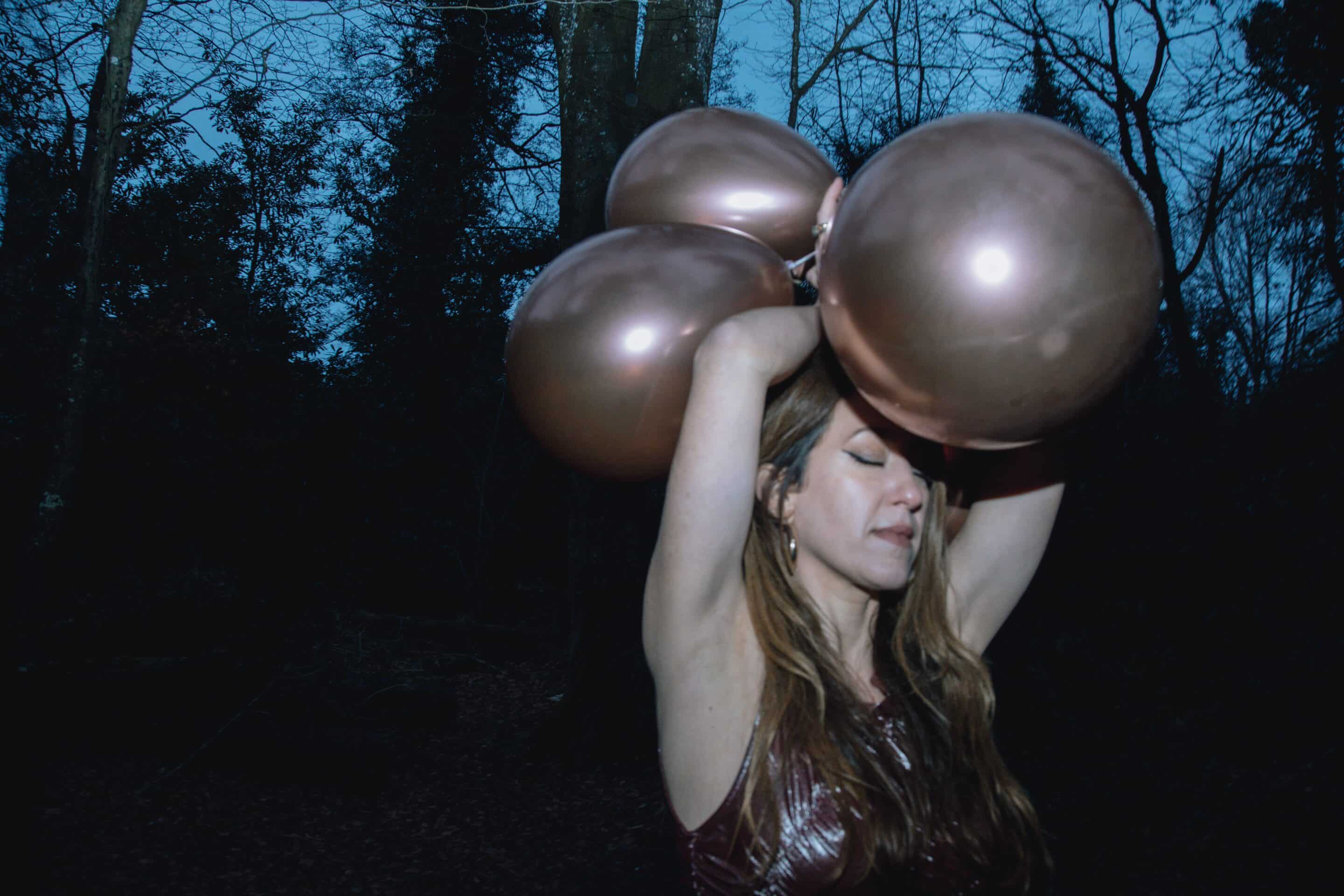
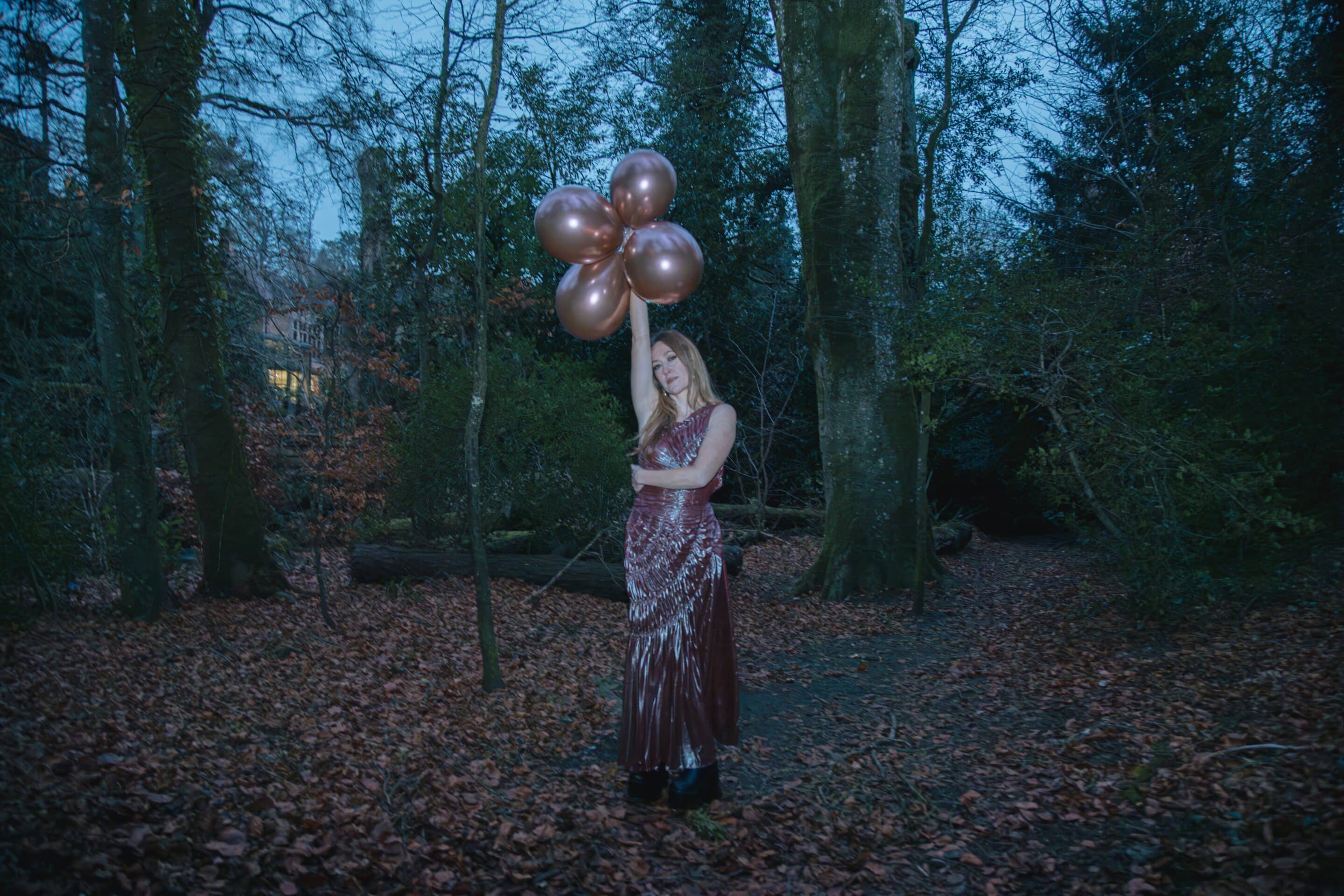
You explore mental health and self-reclamation throughout the EP, particularly on tracks like “For Eden.” How do you hope your music supports listeners navigating similar experiences?
My deepest hope – and the reason I make music – is to be of service. Whether it’s helping someone feel seen, heard, moved, or simply less alone, my dream is for the music to offer comfort or inspiration.
With “For Eden,” I wanted to create a window into what it really feels like to live with – or alongside – mental health struggles. Supporting people with severe mental health challenges, both professionally and personally, has shown me how misunderstood and isolating these experiences can be.
Through this song, I hoped to speak to that loneliness while offering a thread of compassion and hope. I truly believe that people can heal, even from what once felt impossible. Music is one of the ways we can remind each other of that.
You said these songs were “born out of stillness.” What role did solitude or introspection play in the creative process of this project?
A huge role. I often write from a place of solitude, but for this EP, that quietness was essential. These songs began as diary entries to myself, with no expectation that they’d ever be heard. That intimacy shaped everything – from the lyrics and vocal delivery to the tempo and arrangement. It became about deep listening – to myself, to the stillness, and to the songs as they revealed themselves.
The EP blends alternative R&B, cinematic soul, ambient electronica, and indie pop—how intentional was this sonic layering, and how did you know when a track felt “complete”?
I’ve always believed in letting a song become what it wants to be. That approach felt especially important with this project, given how personal the songs are. Some tracks called for more layered, cinematic textures; others felt most powerful in their simplicity. My role was to listen and respond with care.
Sometimes I wondered if these songs were too much like private journal entries to share – but ultimately, I chose to share them. When a song felt emotionally truthful and sonically aligned, that’s when I knew it was done.
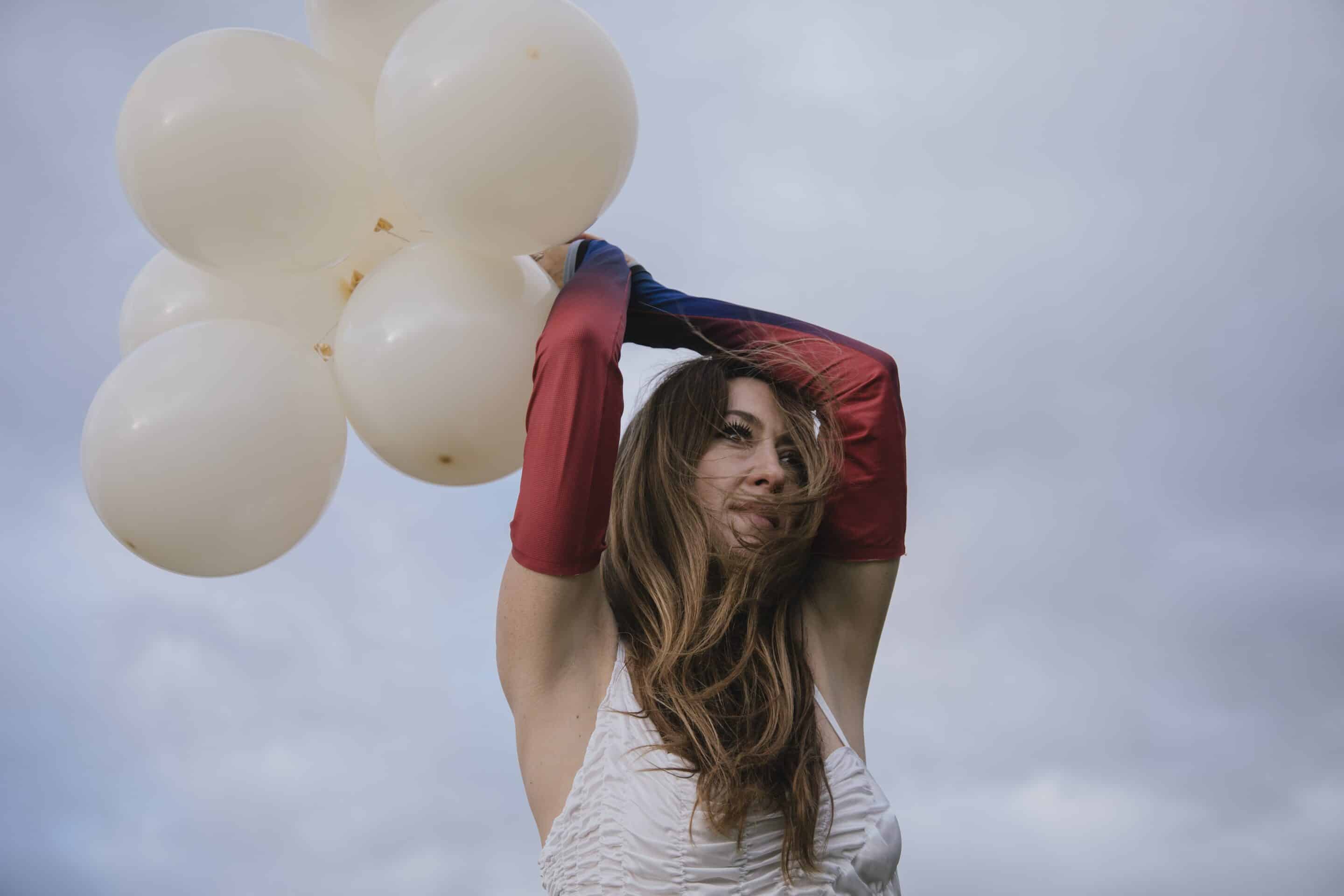
What was it like collaborating with producers like SamTRax and Harvey Whyte on something so intimate and personal? How did their touch elevate or shift your original vision?
SamTRax has a gift for hearing the heart of a song and helping it reach its fullest potential without losing its essence. His musicality and approach to production feel so pure. He really hears the message of a song and uses that intuition and heart to guide how he produces.
He elevated the songs we worked on together and supported me deeply – both as an artist and a producer.
Harvey Whyte is a dear friend and incredible artist is his own right and I just love his work. We wrote “Powder Blue” during one of our jam sessions at the piano. It was born very quickly – I love the rawness he brings to that song and his beautiful piano melodies he played.
I’m so fortunate to work with friends whose music I deeply admire.
As someone raised across multiple countries with a background in psychology, how do those influences manifest in the way you approach songwriting and storytelling?
Growing up across multiple cultures has gifted me a deep curiosity about people and the world. It’s taught me to listen closely, to be open, to look for the beauty in nuance – perhaps that flows into the songwriting.
Working in mental health has opened my heart even further. It’s given me a profound appreciation for the human experience – our struggles, our resilience, our capacity for healing.
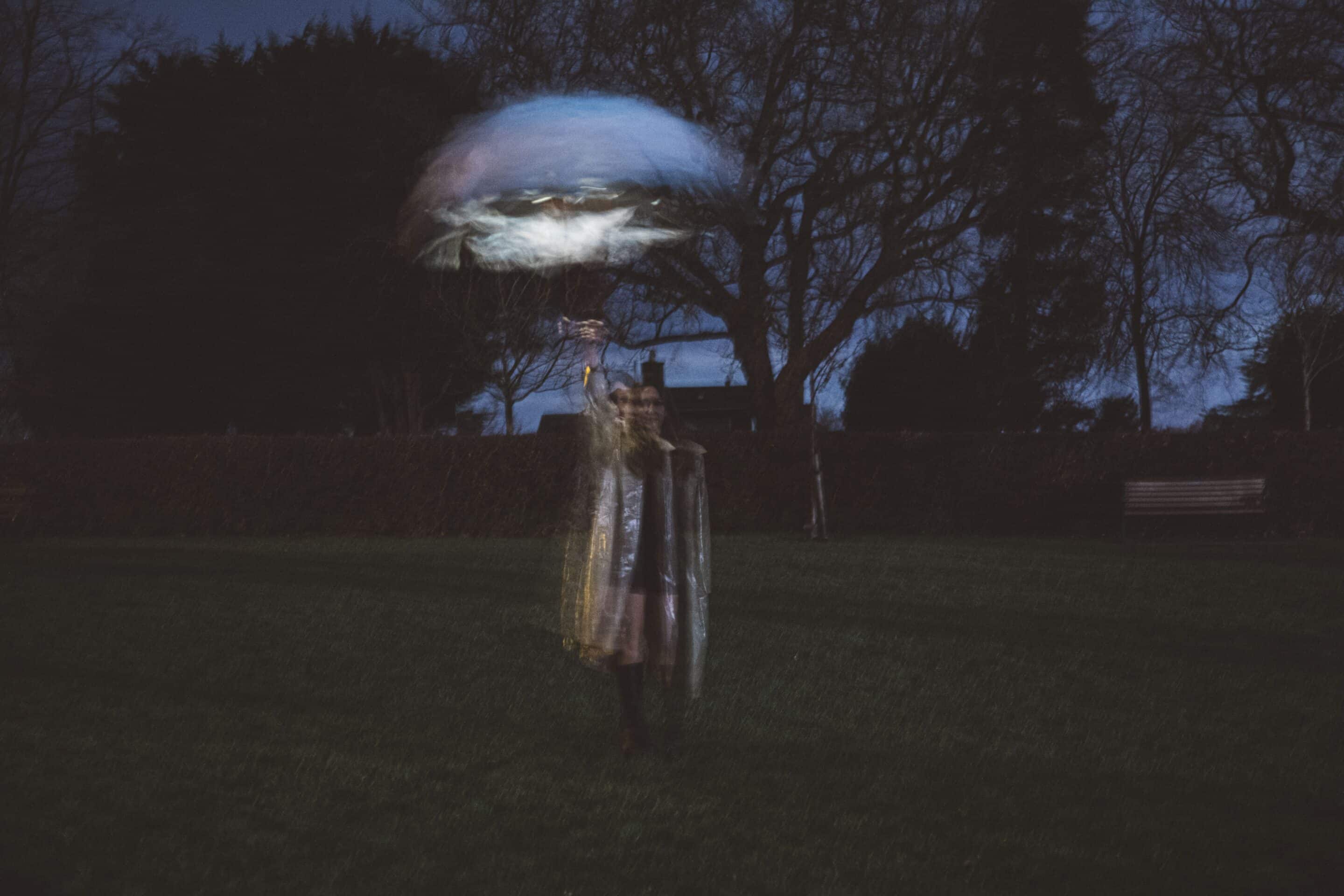
You’ve spoken about wanting the EP to feel like “a hand on your back”—a quiet, supportive presence. Has music always played that role for you personally?
Yes and no. Music has served many roles in my life – catharsis, escape, revelation – but when it comes to my own role in creating it, I feel called to be a quiet support for others.
I hope for my music to illuminate life’s softer corners, to hold space for emotional complexity and to be of service in some way.
With ‘Out of the Blue’ being such a vulnerable and soul-baring work, where do you see your music heading next—creatively, emotionally, or thematically?
I’m really excited to explore a “bigger” sound next – something more expansive, and also more revealing. I want to show different sides of myself: more boldness, more playfulness.
I’ve already written a few songs that feel like the beginning of the next chapter. They’re brighter, bolder – an evolution of everything I’ve done so far. They feel both more accessible and more experimental in different ways. I’m challenging myself as a writer and producer.
Ultimately, I just want to keep growing and hope the music will be a mirror of that growth.

